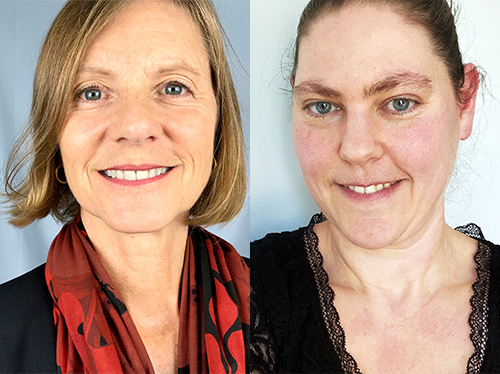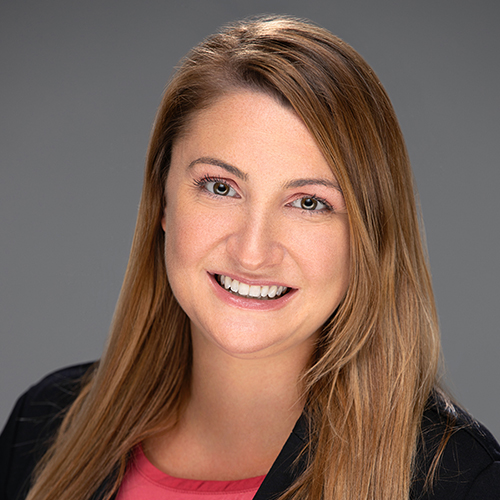 Neonatology Online Course(s) & Continuing Education
Neonatology Online Course(s) & Continuing Education
Access the latest clinical skills and research for Neonatology for Maternal Health professional training. These Neonatology online courses provide practice-changing skills and valuable perspectives from leading global experts. This Neonatology education has been accredited for a variety of CEUs / CERPs and can be accessed on-demand, at your own pace.


Debbie Fraser is an Associate Professor, Faculty of Health Disciplines, Athabasca University and a neonatal nurse practitioner in the NICU at St Boniface Hospital in Winnipeg Manitoba. She is the editor-in-chief of Neonatal Network and is the Executive Director of the Academy of Neonatal Nursing. Debbie has published three textbooks and over 70 book chapters and peer reviewed articles on topics related to high-risk newborns.
Topic: Late Preterm Infants: Not as Grown up as they look! - [View Abstract]
Topic: Not always a safe place: Intrauterine Infections - [View Abstract]
We think of the fetus as living in an impenetrable environment, protected from the outside elements. While most bacteria are too large to cross the placental barrier or infiltrate the amniotic membranes, some bacteria, viruses and parasites are capable of reaching the fetus and causing intrauterine infections. Over the years, the list of organisms responsible for these infections has grown with the addition of pathogens such HIV and West Nile Virus. Most recently, a resurgence of congenital syphilis has been identified in newborns born to women with an active infection in pregnancy. This session will review pathogens responsible for intrauterine infection with particular attention to congenital syphilis. A review of the effects of these infections will be accompanied by a discussion of the diagnosis, management and prognosis of intrauterine infections.


Mohan Pammi is a professor and neonatologist at Baylor College of Medicine. He was the medical director for a large NICU at Texas Children's Hospital for more than 4 years. His research interests are neonatal infections, microbiome and evidence-based medicine. He is currently funded by National Institute Health for clinical studies on the perinatal microbiome in preterm neonates.
Covid-19 was declared a pandemic by the WHO in March 2020. As the medical community dealt with the implications of rapid spread and high mortality and morbidity of the infection, many changes focused on infection control became paramount in the neonatal intensive care unit including attendance at delivery. We will review the manifestations of covid infection in neonates, risks of vertical and horizontal transmission, its impact on the delivery of neonatal care including visitation policies, restrictions on parental visitations, personal protective wear, social distancing, virtual rounding, breastfeeding, universal surveillance and changes in workflow and costs in the NICU.

Current Trends in Identifying and Managing Neonatal Diabetes Mellitus

Tiffany Gwartney, DNP, APRN, NNP-BC, is an Assistant Professor at the University of South Florida (USF), College of Nursing. In addition to her neonatal clinical practice at Nemours Children’s Hospital in Orlando, Dr. Gwartney has been an Assistant Professor at USF since May 2015, where she has written and deployed experiential learning modules for the evidence-based practice course for undergraduates, integrated delegation simulations for undergraduate leadership students, and taught sim labs for the women, children & families course. Her most recent work was the implementation of a simulation regarding nursing interaction with a maternity couplet who was under airborne precautions, while in full personal protective equipment. This simulation was integrated into her COVID Care Education Module in which undergraduate students in their final practicum participated in a pilot program at designated clinical partner sites, providing bedside care for patients with COVID-19 disease. Her research interests include education, neonatal diabetes, role transition for novice Neonatal Nurse Practitioners (NNP), simulation, management of high-risk newborns in the delivery room, and couplet care for mothers with COVID-19. Dr. Gwartney has had several opportunities to speak internationally regarding the benefits of deliberate routine practice of high acuity, low-volume technical skills, and nationally regarding neonatal diabetes and conflict management. She is a member of Sigma Theta Tau (Iota Chapter) and is actively involved in several neonatal professional organizations: Florida Association of Neonatal Nurse Practitioners, Council of International Neonatal Nurses [education committee member], National Association of Neonatal Nurses [member], and The American Academy of Pediatrics [member, conference planning committee]. Dr. Gwartney enjoys traveling for pleasure but has also found herself working triage in a children’s clinic located in the remote village of Zapote, Guatemala, as well as educating NICU nurses in Paisley, Scotland and Shanghai, China.
Neonatal Diabetes Mellitus (NDM) is defined as persistent hyperglycemia (>200 mg/dL) that requires insulin treatment and occurs before six months of age (Habeb et al., 2020). While the incidence of neonatal diabetes is merely 1 in 90,000 to 160,000 live births, the rarity of this disease can make diagnosis challenging and potentially result in delayed treatment (Letourneau et al., 2017). Uniquely set apart from type I diabetes by its strictly genetic etiology, NDM can be associated with developmental delay and epilepsy (DEND). Insulin is a growth factor that is critical for optimal growth. Insulin dependence can be permanent or transient. Management of NDM includes insulin followed by stabilization using oral sulfonylureas (Hattersley et al., 2018). Positive outcomes are contingent upon early diagnosis, euglycemia, early interventions including multidisciplinary involvement, rehab services and parental support with regard to hypo/hyperglycemia management and insulin administration. The purpose of this presentation shall be to describe the etiology, pathophysiology and clinical presentation of NDM, discuss clinical management strategies, and recognize the importance of a multi-faceted, inter-disciplinary approach to caring for an infant with NDM.

View Details / Enroll
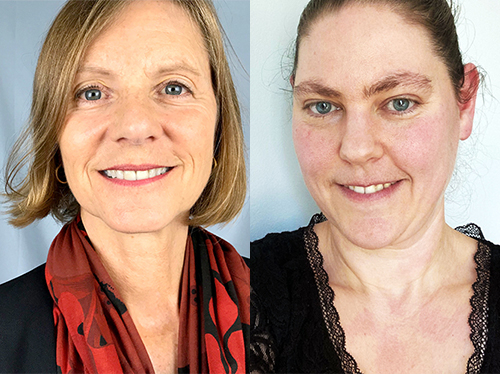

Heidi Heflin RN, MN, CPSTI became a Child Passenger Safety (CPS) Technician in 2013, then an instructor with training in transportation of children with disabilities and school bus transportation. A year later, she established the CPS exhibit at the American Academy of Pediatric Conference for >10,000 attendees seen annually since. She instantly saw the need to combine her experiences by advising, educating, and advocating for nurses in CPS, leading to national, then international presentations. In 2018, she relaunched CPS-In-Healthcare Google group to support hospitals without CPS staff. She’s written for NANN E-News for neonatal nurses and CPS Express for CPSTs. In 2021, she joined the Association for the Advancement of Automotive Medicine and is revising their child restraint policy. She was named a Kidz in Motion ‘CPS Hero’ 2019, 2022, and was a recipient of the SafetyBeltSafe U.S.A. 2022 Siegel Child Safety Restraint Award. Her research examining neonatal nurses’ CPS knowledge and practice is pending publication. Heidi ‘s fervor is for working with CPS pioneers in lower- and middle-income countries. Her favorite work is with CPS Malaysia especially when she met with the Director of the Road Safety Council in 2018. When not working, she cycles with friends, hikes with her dog Olive, or ocean-swims with dolphins.
Carrie Rhodes is the Passenger Safety Program Coordinator at Nationwide Children's Hospital in Columbus, Ohio. She is a Child Passenger Safety Technician-Instructor, Certified Health Education Specialist, and instructor for Safe Travel for All Children: Transporting Children with Special Healthcare Needs, and holds a Master of Transportation Safety Administration from Clemson University. In her role as Passenger Safety Program Coordinator, she focuses on facilitating safe transportation at the time of discharge for patients of all ages, from neonates to teens. Her work includes frequent assistance with car seat tolerance screenings across the hospital's neonatal intensive care units, working with families and clinical staff to achieve the correct balance between a neonate's cardiorespiratory safety and their protection in the event of a motor vehicle crash. She is passionate about ensuring NICU staff understand the importance of both neonate positioning and proper car seat use, as well as remaining abreast of the most currently available evidence to inform transportation decisions and practices.
Healthcare professionals play an important role in promoting the safety of neonates during motor vehicle travel. Properly securing neonates in age- and size- appropriate car seats reduces the risk of serious injury or death from a motor vehicle crash, yet research and field data show most infants and children are incorrectly secured in their car seats. Additionally, screening fragile infants for positioning and tolerance in their car seat reduces the risk of cardiorespiratory compromise. However, research demonstrates that although the American Academy of Pediatrics continues to recommend that at-risk infants be monitored for tolerance in an appropriate car seat or car bed, knowledge, policies, and practices vary widely between healthcare institutions. In light of these concerns, this presentation will review the rationale behind the recommendation to complete a Car Seat Tolerance Screening (CSTS) and discuss common misconceptions about the process and results. Additionally, the steps to set up and conduct a CSTS will be discussed, including a focus on proper harnessing and positioning of the neonate. Finally, the scope of practice of the provider, the bedside nurse, and the hospital’s Child Passenger Safety Technician will be explored.


Christine Bishop is a neonatologist, bioethicist, medical educator, and Assistant Professor of Pediatrics at Wake Forest University School of Medicine and Brenner Children’s Hospital in Winston-Salem, NC. She founded and directs the Brenner Children’s Hospital Care Always ™ Neonatal/Perinatal Palliative Care Program that provides holistic care for infants with life-limiting and complex medical conditions. Dr. Bishop received her MD from The Ohio State University School of Medicine and Public Health and completed her pediatric residency and neonatology fellowship at the University of Texas Health Sciences Center San Antonio. She completed a Master of Arts in bioethics at the Wake Forest University Center for Bioethics, served as the lead clinical ethics consultant for Wake Forest Baptist Medical Center, chairs the Clinical Ethics Consultation Committee, and co-directs the undergraduate medical humanities course at Wake Forest University School of Medicine.
Palliative care is a dynamic, multidisciplinary field of medicine that focuses on holistic care for patients with complex, serious, and life-limiting conditions. Neonatal/perinatal palliative care involves care for women pregnant with fetuses who have potentially life-limiting conditions, a holistic approach to family care and decision making, and care for infants with life-limiting or complex medical conditions. This session will discuss key aspects of neonatal/perinatal palliative care. We learn so much from our patients and families, and their stories will provide the framework as we work through important concepts in neonatal/ perinatal palliative care. Topics to be discussed include communication, shared decision making, managing uncertainty, pharmacologic and non-pharmacologic approaches to care, the role of hospice, and ethical issues involved in care of neonates at the end of life.

View Details / Enroll


Kathryn Stagg is mum to 4 boys, twins and 2 subsequent singletons. She trained as a breastfeeding peer supporter and volunteered in the groups for years in and around Harrow, NW London, UK.
Kathryn caught the breastfeeding support bug and decided to further her knowledge training as a Breastfeeding Counsellor with the Association of Breastfeeding Mothers and then qualifying as an IBCLC 5 years ago.
Kathryn started Breastfeeding Twins and Triplets Facebook group almost 8 years ago and it now has over 9000 members. It has recently been made into a UK charity. Kathryn is passionate about delivering high quality breastfeeding support to as many twin and triplet families as possible, creating resources and educating health care professionals and breastfeeding supporters. She runs a small private practice and continues to teach music part time, her original career path. Kathryn is the author of Breastfeeding Twins and Triplets; a guide for professionals and parents.
/p>
Topic: Don't Let Us Fool You: Breastfeeding in Late Preterm and Early Term Babies - [View Abstract]
Late preterm and early term birth is a barrier to establishing breastfeeding. These babies are often well enough to stay with their mothers and treated like a full term baby. Yet they are often sleepy, uncoordinated and inefficient at the breast leading to a higher chance of unstable blood sugar, weight issues, jaundice and low milk supply. This leads to a high rate of supplementation. Skilled breastfeeding support is the key to helping these babies breastfeeding effectively. This presentation will discuss anticipatory guidance in relation to an early birth, how to protect breastfeeding during the first few days and weeks, and how to move towards exclusive breastfeeding should supplementation be necessary.

View Details / Enroll

Donor Human Milk and Human Milk Products in the NICU

After 37 years as an attending neonatologist and 18 years as medical director of lactation services, Nancy retired from clinical practice 2019. She graduated from medical school and did her training in pediatrics at the University of North Carolina, Chapel Hill. She did her fellowships in Neonatal-Perinatal Medicine and ECMO at UCSD Medical Center in San Diego. She has been a board-certified lactation consultant since 1988.
Nancy co-founded the San Diego County Breastfeeding Coalition in 1994. She was the Breastfeeding Coordinator for AAP CA Chapter 3 from 1992 until 2020, Board Member of HMBANA 2015-2019 and established the first Donor Milk Depot in San Diego over 25 years ago. Nancy is a past president of the Academy of Breastfeeding Medicine. She wrote, and continues to update, the very first ABM Protocol on Hypoglycemia and Breastfeeding.
In 2014 Nancy was awarded the Golden Wave Award by the California Breastfeeding Coalition for her efforts to reduce obstacles to breastfeeding in California, and the WIC Breastfeeding Champion Award in 2017. She received AAP Special Achievement Awards in 1997 and 2021 for her breastfeeding education and promotion efforts.
On a personal note, she is the mother of a (formerly breastfed) archaeology student and lives in San Diego, CA, with her significant other, their dog, Darwin, and a beautiful view of the ocean.
Topic: NICU Nutrition: Best Practice for Best Outcomes - [View Abstract]
Topic: NICU Nutrition: Current Status, Opportunities & Challenges - [View Abstract]
The preferred feeding for all NICU infants is human milk, preferably started on day 1. If mother’s own milk is not immediately available, the clinician should consider the use of heat-treated donor human milk (DHM), which has most of the properties of fresh human milk (immunoglobulins, growth and developmental hormones, enzymes, anti-inflammatory factors, etc.), is sterile, and reduces NEC while improving feeding tolerance. The use of human milk and human milk-derived products has been steadily increasing in world-wide NICUs. In many areas of the USA, it is the standard of care. We will explore the benefits and risks of various donor human milk products, as well as the cost-effectiveness, and challenges for NICUs in using these products.

View Details / Enroll
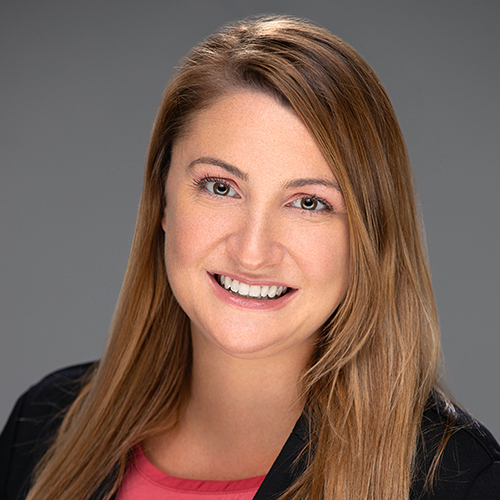

Dr. Jennifer Barnes is the Neonatal Intensive Care Clinical Pharmacy Specialist at Levine Children’s Hospital in Charlotte, NC. She has over 10 years of experience within the field. Dr. Barnes received her bachelor’s degree at Virginia Tech and her Doctor of Pharmacy at Virginia Commonwealth University’s Medical College of Virginia. She completed her pharmacy practice residency at Alamance Regional Medical Center- Cone Health. Dr. Barnes is board certified in pediatric pharmacotherapy. She is also an active member of the Pediatric Pharmacy Association (PPA) and is currently serving as the neonatology committee chair. Dr. Barnes serves as a clinical assistant professor for pharmacy advanced practice rotations for University of North Carolina, University of South Carolina, Wingate University and High Point University. Her current research areas of interest include the role of diuretics in bronchopulmonary dysplasia treatment and antibiotic stewardship for late-onset sepsis amongst other topics.
Topic: Get the LOW Down on Neonatal Hypotension - [View Abstract]
Topic: Starbucks for Babies? Caffeine Use in Neonates - [View Abstract]
Many premature infants spend months within neonatal intensive care units (NICUs). During their NICU admission, typical preventive care ideally should also be addressed. The Centers for Disease Control and Prevention (CDC) recommends that infants and children be vaccinated at the recommended schedule regardless of premature birth. In this presentation, we will review the different immunizations given in the first six months of life that are most relevant to patients in the NICU. Additionally, we will compare distinctive immunogenic and tolerability aspects for the term and preterm population. There is also tremendous growth in new vaccines and viral prophylaxis options coming to market soon. This presentation will also address these new agents and how they are pertinent to the NICU population. So don’t miss your shot to further your immunization knowledge.
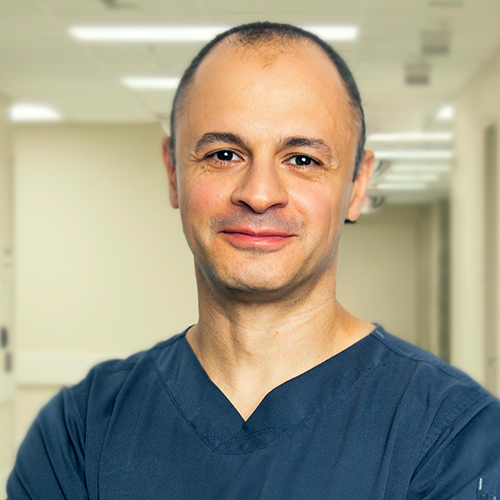
Early Breastmilk Exposure and Later Cardiovascular Health in Premature Infants

Prof EL-Khuffash is a Consultant Neonatologist and Paediatrician. He is a qualified International Board Certified Lactation Consultant. His two primary clinical and research areas of expertise are heart function in neonates and the promotion of breast feeding, and breast feeding support, to new mothers. He also has extensive expertise in general feeding issues encountered by babies over the first few months.
Prof EL-Khuffash sees families for prenatal breast feeding and fetal anomaly consultations and postnatal infant assessment, 2 and 6 week checks, and breastfeeding/general support including early irritability and reflux in his consultation rooms in the Rotunda Private Clinic.
Prof EL-Khuffash has considerable knowledge of breast feeding medicine and experience in providing antenatal and postnatal breast feeding advice and support to new mothers. This includes identifying and addressing challenges to breastfeeding in both the mother and the baby. He also specialises in general feeding difficulties and early feeding issues encountered by babies.
Prof EL-Khuffash graduated from Trinity College, Dublin in 2002 and enrolled in the Royal College of Physicians of Ireland paediatric specialist training scheme in 2005. He completed a Doctor of Medicine (MD) degree in University College, Dublin in 2008 and his neonatal specialty training in Toronto, Canada (2009-2011). Following this, he was appointed as a consultant Neonatologist and Assistant Professor of Paediatrics at the University of Toronto in January of 2011. He obtained a diploma in clinical epidemiology during his time in Toronto. He is the recipient of several national and international research awards, with international peer reviewed publications and keynote presentations and the lead for cardiovascular research, supervising several post graduate PhD candidates.
Topic: Mother's Own Milk Versus Donor Human Milk in the NICU: Practical Recommendations for Individualized Care - [View Abstract]
Premature infants have impaired cardiovascular function that persists into adulthood. Preterm infants exhibit impaired systolic and diastolic dysfunction that is intolerant of the adverse loading conditions experienced during the early neonatal period. Young adults born premature demonstrate a unique cardiac phenotype characterized by reduced biventricular volume, relatively lower systolic and diastolic function, and a disproportionate increase in muscle mass. This may clinically manifest by an increased risk of cardiovascular incidents, hypertension, and reduced exercise tolerance. Those consequences appear to result from early postnatal cardiac remodelling due to premature birth and associated comorbidities. Recent evidence suggests that early exposure to breast milk slows down or even arrests those pathophysiological changes, thereby mitigating the long-term adverse effects of premature birth on cardiovascular health. In this presentation, I aim to demonstrate the vital role of early breast milk exposure in preventing cardiovascular disease in preterm infants. We will explore the emerging evidence and examine the possible mechanistic pathways mediating this phenomenon.
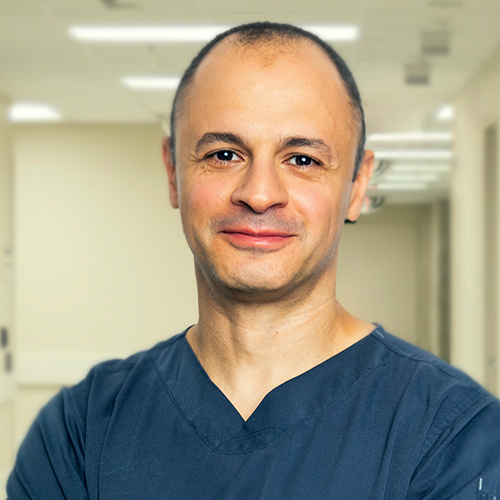
View Details / Enroll
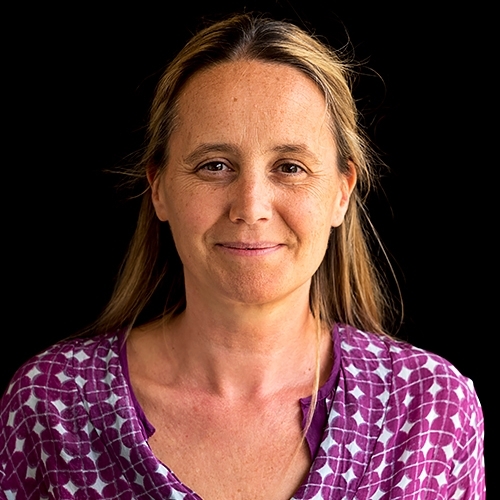
Early Vocal Contact Between Parents and Preterm Infants in the Neonatal Intensive Care Unit

Manuela Filippa is researcher at the Geneva University. She received her PhD in Developmental Psychology at the University of Paris Ouest Nanterre, she studies the effects of the Early Vocal Contact - maternal direct speech and songs - on premature infant’s development in collaboration with international research centers. She is a Musician by training, she teaches Psychology of Music and Music Education at the University of Valle d'Aosta, Italy. She became an expert in the field of early interventions in at-risk populations. Her scientific works were published in a number of international journals, in a dedicated book on Early Vocal Contact and, lastly, in a Special Issue of National Geographic, January 2019.
Early Vocal Contact aims to enhance closeness between preterm infants and their caregivers, principally through the medium of the voice. The specific aims of this presentation are;
(1) to give evidence the special orientation that newborns have towards the maternal voice;
(2) to explore the literature on the effects of the maternal voice on preterm infants in the neonatal intensive care unit;
(3) to identify and to describe the mechanisms through which early vocal contact acts as an early, family-based intervention for preterm infants and;
(4) to suggest some final recommendations for clinical practice.
Encouraging live vocal contact, with preterm infants, far from being only a sensory/acoustical stimulation, can activate a number of related and consequential actions (intuitive parenting, multimodal co-regulation, reciprocal synchronisation). These normal actions in full-term birth are at the foundation of bonding and attachment processes and can lead to long-term and sustained positive effects on the development of preterm infants.

View Details / Enroll





